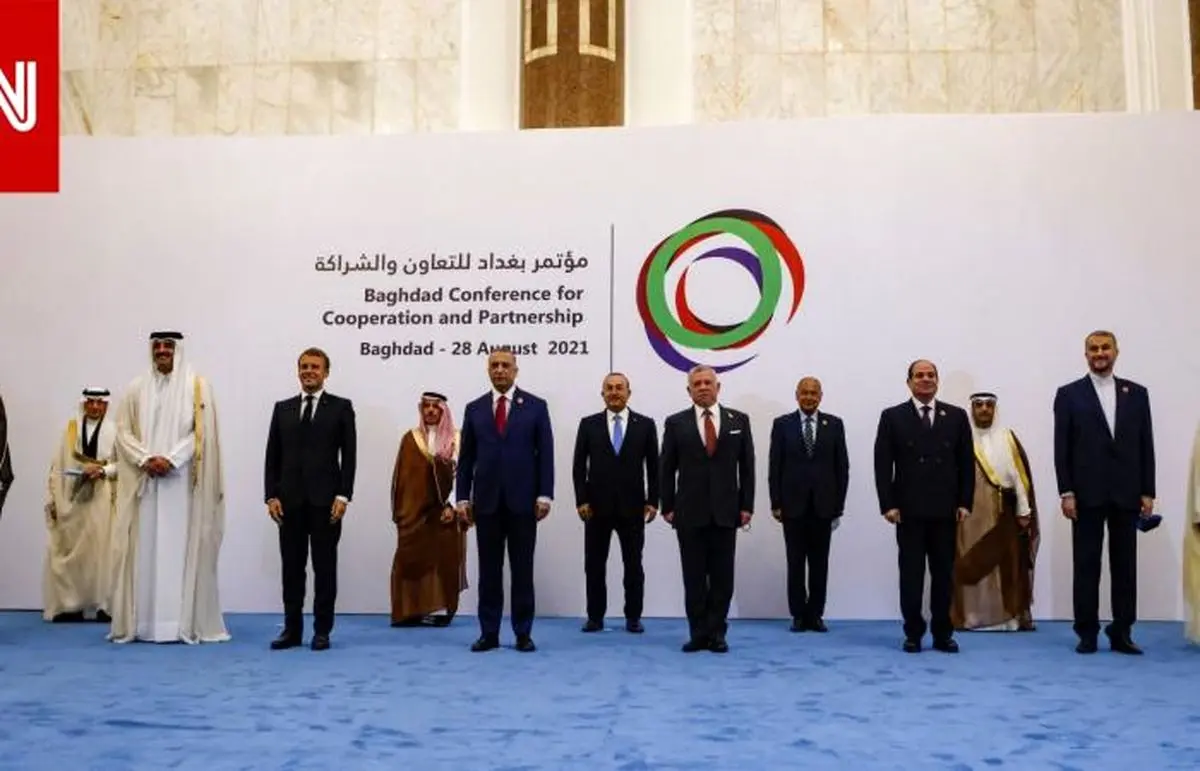Iran-Saudi step forward at Baghdad conference ambiguous

Hossein Amir-Abdollahian arrived in Baghdad Saturday for his first external trip as Iran’s foreign minister.
The conference, organized by Iraq and France, has attracted Egypt’s President Abdel Fattah al-Sisi, King Abdullah of Jordan, Qatari Emir Sheikh Tamim bin Hamad al-Thani, France’s President Emmanuel Macron, the Kuwait and the United Arab Emirates heads of government, and Turkey’s foreign minister.
After an initial confusion, it became clear that Saudi Arabia is represented by its foreign minister, Prince Faisal bin Farhan, but so far there is no news about a separate bilateral meeting between Riyadh and Tehran.
The main role of the conference, Iraqi foreign minister Fuad Hussein said Wednesday, was to “to enhance the Iraqi role, support for Iraq, build economic partnerships with countries in the region, and transform the space of conflicts and tensions in the region into a state of dialogue.”
As a mainly Arab country with a majority Shia population and strong trade and cultural links with Iran, Iraq is a ready victim of Saudi-Iran hostility. "Even if we bring the foreign ministers together at one table this could be considered a breakthrough to end the tensions between Iranians and the Gulf Arabs," an official close to Iraqi Prime Minister Mustafa al-Kadhimi told Reuters earlier in the week.
Saudi Arabia and Iran held direct talks earlier this year brokered by Baghdad and vowed to continue the process. New president Ebrahim Raisi has stressed an intention to improve relations with the Arab states in the Persian Gulf and some analysts regard this as reflected in his appointing Amir-Abdollahian, who held responsibility for Arab affairs as deputy foreign minister (2011-16) and was ambassador to Bahrain from 2007 to 2010.
Saudi Arabia, after supporting US President Donald Trump’s withdrawal in 2018 from the Iranian nuclear agreement and his imposition of ‘maximum pressure’ sanctions, has been trying to develop relations with the administration of President Joe Biden as Washington seeks to revive the 2015 agreement, the JCPOA (Joint Comprehensive Plan of Action).
One Iranian official told Reuters that the JCPOA and easing sanctions remained Iran’s priority while “the meeting in Iraq ... is only focused on Iraq and how the regional countries can cooperate to help Iraq.”
Organizers of the Baghdad conference counselled against expecting a dramatic breakthrough. "Getting these countries to sit around the table − that will be achievement enough," said one Iraqi government official.
Macron’s two-day trip to Iraq reflects his continuing interest in the Middle East, seen in his public role raising support for Lebanon. The president will meet Iraqi political leaders and visit French Special Forces involved in the fight against the Islamic State in Iraq. Al-Kadhimi said France and Iraq were "partners" in the “war on terrorism.”
END
